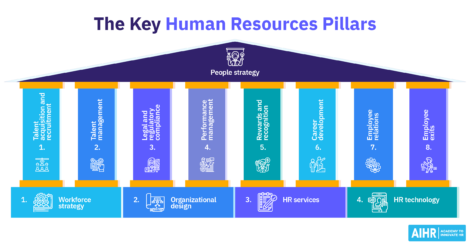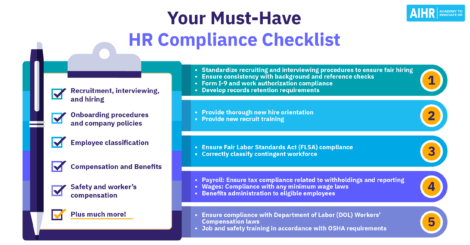7 Reasons Why Employee Recognition Matters

Employees are among the most critical assets of any organization. It’s essential to keep them happy and engaged — two critical factors in maintaining a productive, thriving workplace. Which is why employee recognition matters.
According to a study by the Society for Human Resource Management, employee morale is the single most important predictor of employee engagement.
There are many ways employee recognition in the workplace can look like, from fostering peer recognition to recognizing your employees’ efforts with awards. Here are a few tips to get you started on an employee service award program as part of your recognition strategy
Contents
Talent attraction and retention
Improved morale
Increased engagement
Improved productivity
Improved customer service
Lower turnover rate
Improved bottom line
How to develop an employee recognition program
1. Talent attraction and retention
One of the most underrated aspects of employee recognition is its role in talent attraction and retention. The war for talent is real, and top candidates have their pick of employers. According to a study by Forbes, two-thirds of employees would leave their current job for one that offered better recognition.
When employees feel valued and appreciated, they’re more likely to stick around. Recognition also helps with recruitment, as it signals prospective employees that your organization is an excellent place to work.
Additionally, recognition can help you retain top talent by making it more difficult for them to be poached by competitors.
2. Improved morale
Employee morale refers to how happy and satisfied employees are with their job. It’s a key indicator of engagement, as employees who are unhappy with their job are less likely to be engaged.
Unsurprisingly, recognition has a positive impact on morale. 97% of employees say that being recognized motivates them to do their best work, according to a study by Zippia.
Employees who feel appreciated are more likely to be satisfied with their job and have a positive outlook. This, in turn, leads to improved morale and a more positive work environment. This reflects in the quality of their work as well.
3. Increased engagement
Engagement is the degree of an employee’s psychological investment in their job. It’s a key metric for any organization because an engaged employee is more productive, efficient, and less likely to leave.
Recognition is one of the most effective ways to increase engagement. Not only does it make employees feel appreciated, but it also makes them feel like their work is valued. This sense of purpose is essential for engagement, as it motivates employees to do their best work.
It also encourages employees to go above and beyond their job description. Employees who feel their work is making a difference are more likely to stay engaged.
4. Improved productivity
The biggest concern for any business owner or manager is productivity. After all, a productive workforce is key to a successful organization. Ensuring that your employees feel like they are a part of the team and are working towards common goals is essential for maintaining a productive workplace.
Recognition is a powerful tool for improving productivity. It shows employees that their efforts are appreciated and drives them to work harder. Additionally, it creates a company culture of excellence and sets employee performance standards.
Recognition doesn’t just boost productivity; it also leads to higher-quality work. This is because recognition encourages employees to pay attention to detail and strive for excellence. A well-designed recognition and rewards program can drive an 11.1% increase in average employee performance.
5. Improved customer service
Customer service is a key metric for any business, as it directly impacts revenue. Happy customers are more likely to purchase from a company again and recommend it to others.
Several factors contribute to customer satisfaction, but employee attitude is one of the most important. Employees who feel appreciated are likelier to have a positive attitude towards their work and customers. This, in turn, leads to improved customer service.
Recognition also helps build relationships between employees and customers. When employees feel like they’re part of a team, they’re more likely to go above and beyond for customers. This sense of camaraderie creates a positive customer experience and builds loyalty. In fact, 35% of companies that have recognition programs noticed an increase in customer satisfaction.
6. Lower turnover rate
Turnover is the percentage of employees who leave a company within a given period. It’s a key metric for any business, as it can impact productivity and morale.
A high turnover rate is costly and disruptive to a business. Training new employees takes time and money, and there’s always the risk that they won’t work out. Additionally, it can create a negative company culture if employees feel like colleagues are constantly being replaced.
Recognition is a powerful tool for reducing turnover. Having a program that recognizes your employees reduces the possibility of voluntary resignations. Additionally, it helps build a sense of loyalty and commitment to the company.
7. Improved bottom line
Businesses care about one thing: their bottom line. Every business decision should be based on how it will impact the bottom line.
Recognition is a powerful tool for improving the bottom line. It increases productivity, engagement, customer satisfaction, and retention. All of these factors lead to increased revenue and profitability. Investing in a recognition program is an investment in your business. A 15% improvement in engagement can result in 2% increase in margins
. It may seem like a minor expense, but it will pay off in the long run.
How to develop an employee recognition program
Now that you know the benefits of employee recognition, it’s time to put together a program. Here are a few tips to get you started:
1. Decide what you’ll recognize
The first step is to decide what you’ll recognize. This will depend on your company’s goals and values. For example, if you want to improve customer service, you might award exemplary customer service.
Not every award needs to be given for exceptional performance. You can also offer awards for years of service or reaching a milestone; 5 and 10-year service awards for employees are very common. They serve as a way to say “thank you” for the employee’s years of dedicated service.
2. Set parameters
Once you’ve decided what you’ll recognize, it’s time to set some parameters. This will help you determine who is eligible for an award and how often they can receive one. For example, you might decide that employees must have been with the company for at least a year to be eligible. Or, you might decide that employees can only receive one quarterly award.
You need to balance making the criteria too easy and too difficult. You want to recognize as many employees as possible, but you don’t want to devalue the award. Remember, having an award that’s difficult to earn will make it more valuable.
3. Choose an award
Now it’s time to choose the actual award. This is where you get to be creative. The sky’s the limit when it comes to employee recognition. You can give away anything from gift cards to vacations. It all depends on your budget and what you think your employees will appreciate.
Some companies like to give their employees a choice regarding awards. This allows employees to choose an award that’s meaningful to them. Others prefer to surprise their employees with an unexpected award. It all depends on your company culture and what you think your employees will respond to.
4. Promote the program
Promote the program and ensure your employees are aware of it. The best way to do this is to include information about the program in your new hire orientation. This will ensure that all your employees are aware of the program from the start.
You should also promote the program through your company’s internal communications. This could be something as simple as an announcement in the company newsletter. You can also post information about the program on your company intranet or website.
5. Make it easy to nominate employees
If your awards program is successful, make it easy for employees to nominate their colleagues. The nomination process must be straightforward. Employees should be able to nominate anyone they feel is deserving of an award.
You can promote the nomination process by sending out periodic reminders. You can also make it easier by creating an online nomination form. This will make it easier for employees to submit their nominations.
If it is an award that an employee automatically qualifies for, such as years of service, then you can have something as simple as a sign-up form where employees put their name down to receive the award.
6. Review nominations and choose recipients
Review applications or nominations carefully to choose the most deserving recipients. Take your time and don’t rush this process. The last thing you want is to give an award to someone who doesn’t deserve it.
After you’ve reviewed the nominations, it’s time to choose the award recipients. You can do this yourself or delegate the task to a committee. Either way, make sure you communicate the decision to all employees. You can then present the awards at an employee recognition ceremony or event.
To sum up
Setting up an employee recognition program is a great way to show your employees that you appreciate their hard work. These steps will help you create a successful program that your employees will love. The benefits of an employee recognition program are many, so invest the time to develop one for your organization.
Weekly update
Stay up-to-date with the latest news, trends, and resources in HR
Learn more
Related articles
Are you ready for the future of HR?
Learn modern and relevant HR skills, online










